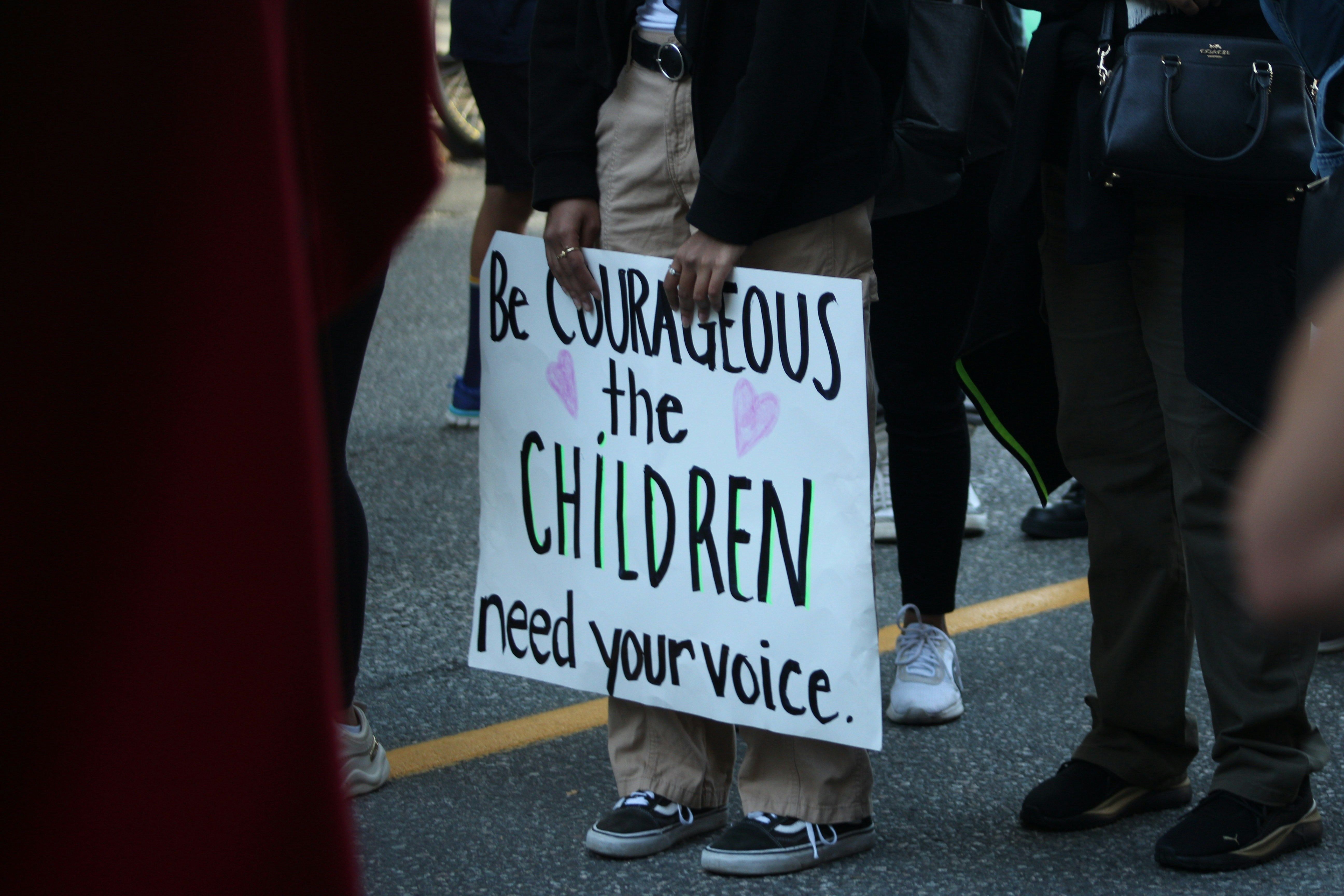In a significant overhaul of family law, the government has announced it will scrap the presumption of parental involvement in child arrangement cases—a legal principle that has long guided family courts in England and Wales.
This landmark decision, announced on October 22, 2025, responds to compelling evidence that the presumption has inadvertently placed children at risk by prioritising contact with both parents over individual safety considerations in cases involving domestic abuse.
The reform represents a fundamental shift from what critics have termed a "pro-contact culture" in family courts, toward a system that places child safety and welfare as the paramount consideration in every case.
The change has been hailed by domestic abuse campaigners as a long-overdue protection for vulnerable children and a victory that "will save so many children's lives".

Key Takeaways
- Legal reversal: The government will repeal the presumption of parental involvement from the Children Act 1989.
- Safety-first approach: Courts will no longer start from the position that contact with both parents is automatically beneficial.
- Driven by evidence: Research showed the presumption contributed to a "pro-contact culture" that sometimes placed children at risk.
- Campaigner influence: The change follows years of advocacy by domestic abuse survivors and organisations.
- Implementation pending: Legislation will be introduced "when parliamentary time allows".
What Was the Presumption of Parental Involvement?
Introduced in 2014 through the Children and Families Act, the presumption of parental involvement was embedded in Section 1(2A) of the Children Act 1989.
It stipulated that a parent's involvement in a child's life would further the child's welfare. This involvement could be direct, such as visits, or indirect, such as letters, and was authorised unless evidence suggested it risked causing harm.
This presumption applied specifically to private law cases where courts were considering making, varying, or discharging Child Arrangements Orders under Section 8 of the Children Act 1989. These orders determine where a child lives and with whom they have contact, some of the most consequential decisions in family law.
While the law included safeguards to restrict parental involvement when detrimental to a child's welfare, in practice, critics argued it created a dangerous starting point that privileged parental rights over child safety.

The Evidence for Change
The decision to repeal the presumption follows years of research and review that revealed systemic problems in how family courts handled cases involving domestic abuse:
- A 2020 Ministry of Justice report found the presumption was "implemented inconsistently...and rarely disapplied," reinforcing a "pro-contact culture" that detracted from the court's focus on individual child safety.
- The government's recent Review of the Presumption of Parental Involvement found courts took a "no stone unturned" approach to fostering children's involvement with both parents after separation, leading to "an apparent high incidence of orders for direct contact where there were indicators of risk".
- A report from the Domestic Abuse Commissioner revealed that while domestic abuse was cited in 87% of case files analysed from 2023, 44% of those cases still resulted in orders for direct unsupervised overnight contact with parents. The government's review concluded that evidence "suggested that courts were ordering direct contact between children and parents who caused or posed a risk of harm".

The Human Cost: Claire Throssell's Campaign
The reform has been heavily influenced by the tragic case of Claire Throssell, whose two sons—Jack (12) and Paul (9)—were killed by their father during an unsupervised contact visit in October 2014.
Despite Throssell having presented evidence that her former partner had previously threatened to kill the children and himself, the family court had granted him unsupervised contact. During one of these visits, he lured the boys into an attic with a new model train set and set fire to the house, killing all three of them.
Throssell has campaigned tirelessly for over a decade for reform of the family courts, working closely with Women's Aid. She welcomed the announcement, stating:
❝"Successive governments have failed to protect children, standing by an outdated presumption that it is in a child's best interests to have contact with both their parents, even when there have been allegations of domestic abuse".❞
While acknowledging the change could never bring back her sons, Throssell expressed comfort that it would "save so many children's lives".

The New Legal Framework
Once implemented, the repeal will mean:
- No automatic starting point: Courts will no longer begin deliberations with a presumption that parental involvement is beneficial.
- Child recognised as victim: If one parent is abused by the other, the child is legally recognised as a victim too, even without direct harm or witnessing.
- Impact on survivor: Where domestic abuse is established, the Family Court must consider how any contact order would affect the abused parent’s safety and wellbeing.
Broader Context and Related Reforms
This announcement forms part of a broader package of family court reforms. The government also recently announced plans to:
- Automatically restrict parental responsibility for persons convicted of serious sexual offences against children (with sentences of four years or more).
- Automatically restrict parental responsibility where a child was born as a consequence of rape.
- Expand the pilot of "Pathfinder" courts, which aim to improve the court experience and outcomes for children and parents involved in private family law proceedings.

Perspectives on the Reform
Support from Advocacy Groups
The announcement has been widely welcomed by domestic abuse organisations:
Women's Aid CEO Farah Nazeer described the move as "an important first step" but noted that:
❝"With the existing 'pro-contact' culture being deep-rooted in the family courts, comprehensive action needs to be taken to overturn these dangerous attitudes".❞
The Domestic Abuse Commissioner, Nicole Jacobs, called it
❝"A pivotal moment that will improve how domestic abuse is responded to within the family court and ensure children are properly heard, protected and supported".❞
Gingerbread, the single-parent family charity, stated that the presumption had:
❝"Put adult rights above children's welfare" and its repeal would create "a safer, fairer system for all families".❞
Dr Charlotte Proudman, a family law barrister, described the change as:
❝"A victory for children's rights, for survivors and for justice" and "a vital step in dismantling the pro-contact culture that has dominated family courts for too long".❞
Calls for Further Action
While celebrating the announcement, many experts emphasise that legislative change alone is insufficient. There are strong calls for:
- Mandatory specialist training for judges on domestic abuse.
- Cultural change within the family justice system to overcome deeply embedded "pro-contact" attitudes.
- Full implementation of the 2020 harm panel's recommendations.
As Olive Craig of Rights of Women noted:
"While this is a really, really important step forward, it is just one step towards managing the very real problems of the cultural environment in the family justice system".

Conclusion
The repeal of the presumption of parental involvement marks a significant turning point in family law—one that prioritises child safety over parental rights.
As Justice Minister Baroness Levitt powerfully stated:
❝"Being a parent is a privilege, not a right: the only right which matters is a child's right to safety".❞
While the legislative process remains ahead, this announcement sends a clear message about the fundamental principles that should guide decisions affecting children's lives. It acknowledges that contact with an abuser is deeply harmful to children, risking not only their physical and mental wellbeing but, in the most extreme cases, their lives.
For professionals working in social work and family assessment, this legal shift underscores the importance of evidenced-based, child-centred approaches in all recommendations to courts. It represents a long-awaited alignment of legal principles with the reality that parental involvement must be safe to be beneficial—and that safety must always come first.
Sources
- Al-Othman, H. (2025, October 22). Family law shift hailed as victory for children facing domestic abuse. The Guardian. https://www.theguardian.com/uk-news/2025/oct/21/family-law-shift-hailed-as-victory-for-children-facing-domestic-abuse
- Children Act 1989, Section 1. (n.d.). Legislation.gov.uk. Retrieved October 27, 2025, from https://www.legislation.gov.uk/ukpga/1989/41/section/1
- Children Act 1989, Section 8. (n.d.). Legislation.gov.uk. Retrieved October 27, 2025, from https://www.legislation.gov.uk/ukpga/1989/41/section/8
- Children and Families Act 2014. (n.d.). Legislation.gov.uk. Retrieved October 27, 2025, from https://www.legislation.gov.uk/ukpga/2014/6/contents
- Domestic Abuse Commissioner. (2025). Everyday business: Addressing domestic abuse and continuing harm through a family court review and reporting mechanism. Domestic Abuse Commissioner for England and Wales. Retrieved November 3, 2025, from https://domesticabusecommissioner.uk/wp-content/uploads/2025/10/Everyday-Business-full-report-web.pdf
- Gingerbread. (2025, October 24). Why Gingerbread supports the repeal of the presumption of parental involvement. https://www.gingerbread.org.uk/our-work/news-and-views/why-gingerbread-supports-repeal-presumption-of-parental-involvement/
- ITV News. (2025, October 22). “He killed them to punish me”: Mum whose sons were killed by father says law change will save lives. ITVX. Retrieved November 3, 2025, from https://www.itv.com/news/2025-10-21/mother-whose-sons-were-killed-by-their-father-says-law-change-will-save-lives
- Maclugash, V. (2025, October 22). Women’s Aid marks momentous Ministry of Justice decision by honouring children killed and ignored by dangerous practices in family courts. Women’s Aid. https://womensaid.org.uk/womens-aid-marks-momentous-ministry-of-justice-decision/
- Ministry of Justice. (2020). Assessing risk of harm to children and parents in private law children cases: Final report. GOV.UK. Retrieved October 27, 2025, from https://assets.publishing.service.gov.uk/media/5ef3dcade90e075c4e144bfd/assessing-risk-harm-children-parents-pl-childrens-cases-report_.pdf
- Ministry of Justice. (2025a, March 27). Private Law Pathfinder delivery update. GOV.UK.https://www.gov.uk/government/publications/private-law-pathfinder-delivery-update
- Ministry of Justice. (2025b). Review of the presumption of parental involvement: Final Report. GOV.UK. Retrieved October 27, 2025, from https://assets.publishing.service.gov.uk/media/68f5f5c206e6515f7914c7e3/Review_of_the_Presumption_of_Parental_Involvement_Final_Report_.pdf
- Ministry of Justice. (2025c, October 21). Government action to protect children from abusive parents. GOV.UK.https://www.gov.uk/government/news/government-action-to-protect-children-from-abusive-parents
- Richardson, S. (2025, October 23). Family court’s presumption of parental involvement soon to end. Russell-Cooke. Retrieved October 27, 2025, from https://www.russell-cooke.co.uk/news-and-insights/news/family-court-s-presumption-of-parental-involvement-soon-to-end
- Samuel, M. (2025, October 26). Government to scrap presumption of parental involvement ‘to protect children from abusive parents’. Community Care. https://www.communitycare.co.uk/2025/10/22/government-to-scrap-presumption-of-parental-involvement-to-protect-children-from-abusive-parents/




